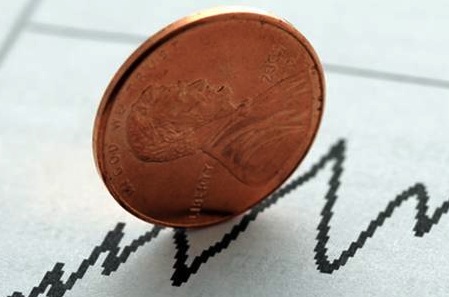Novice investors often look at a stock price and see the value of the company—a stock priced at $100 seems like it’s more expensive than a stock priced at $10. After all, you can double your money if the stock at $10 goes to $20 but only gain ten percent if the stock at $100 goes to $110. Isn’t that how successful investors made their fortunes? Betting on the right stocks then watching them double, triple, or quadruple their money overnight?
Buying Penny Stocks
Sometimes this desire for a great stock bargain leads investors (especially beginners!) into penny stocks, also called micro caps, smallcap stocks, or stocks on the pink sheets. A stock priced under $5 per share has nowhere to go but up, right? It won’t take much movement in the stock’s price to make a lot of money, right? Besides, with a stock that cheap, you surely have lots of options, right? All you have to do is find penny stocks that will double or triple in value!
How might an experienced value investor think about this? First, you have to understand what a penny stock is and why it’s cheap.
What is a Penny Stock?
By popular definition, a penny stock is a stock with a price less than a dollar per share. If you were to define a penny stock in technical terms, it’s a stock which meets certain regulatory requirements less stringent than stocks traded on a major exchange like the NYSE or the NASDAQ. In other words, if Coca-Cola’s share price dropped to $4.99, it wouldn’t necessarily be a penny stock, and if Google’s stock price dipped to $0.99, it wouldn’t be a penny stock either.
Why might a penny stock not be on a major exchange? The company behind the stock is risky! It might be a very small company, not worth very much money. It might have wild swings in its stock price. It might be a risky company in a very risky business. It might have loads of debt, or it might have huge tax liabilities.
You might also hear penny stocks described as micro-caps, which refers to the relatively small value of the company. For example, a penny stock might sell for $0.50 a share with two million shares outstanding. The company has a market capitalization (share price multiplied by the number of outstanding shares) of only a million dollars—tiny compared to a big company like Apple or Ford, and tiny compared to a normal sized company like Corning.
Agencies

 Canada Journal – News of the World Articles and videos to bring you the biggest Canadian news stories from across the country every day
Canada Journal – News of the World Articles and videos to bring you the biggest Canadian news stories from across the country every day

